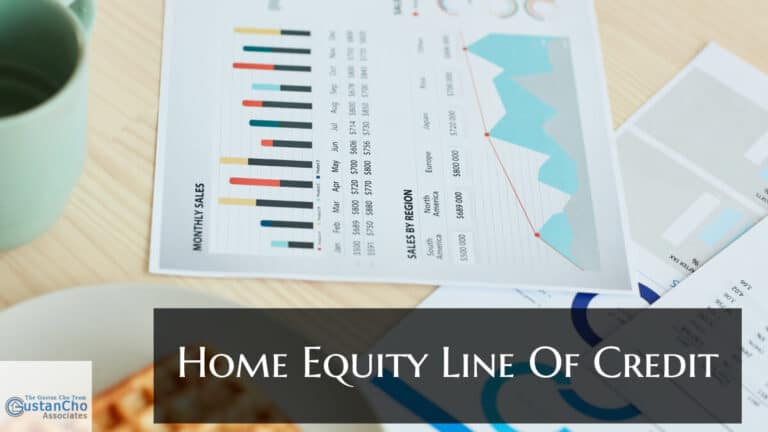Net Tangible Benefits of Refinance With Lower Mortgage Rates
This guide covers the net tangible benefits of refinance with lower mortgage rates. Right now may be the opportunity for homeowners to refinance with lower mortgage rates. Mortgage rates have been steadily decreasing for the past several weeks and seem like they will continue to creep lower due to the sudden hike after the news former President Donald Trump will be running again in 2024.
Mortgage rates going below the 7.0% mark seem like reality again after mortgage rates surpassed the 8.0% mark several weeks ago for conventional mortgage loans.
Mortgage-backed securities, also known as MBS, spiked up 95 basis points last week, which has dropped mortgage rates. Mortgage-backed securities have an inverse effect on mortgage rates. If Mortgage-Backed Securities go up in value, mortgage rates drop. If Mortgage-Backed Securities decrease in value, mortgage rates increase. The following paragraphs will cover the reasons for refinance with lower mortgage rates.
Refinance With Lower Mortgage Rates: Why Did Mortgage Rates Drop?
News that weaker than analyst-expected employment data is the primary reason for the spike in the pricing of Mortgage-Backed Securities. Economists have forecasted that 180,000 new jobs will be added to our economy. However, only 148,000 jobs were added in September.
The unemployment rate in the United States has dropped slightly from 7.3% to 7.2%. This drop in the unemployment rate has been the lowest since November 2008.
Democrats are crediting this drop to President Barack Obama. However, critics do not consider this good news. Critics and Republicans feel the drop in unemployment rates was due to people who have left or given up the labor force and gave up on looking for full-time jobs. Looking around, you will see a lot of credit for this reasoning.
Reasons To Refinance With Lower Mortgage Rates
One of the most common reasons to refinance is to take advantage of lower interest rates. When interest rates drop, refinancing a mortgage, auto loan, or other loans can lead to lower monthly payments and potentially save you money over the life of the loan.
Refinancing can extend the loan term, which may result in lower monthly payments. This can be helpful if you’re facing financial difficulties or want to free up cash for other purposes.
Shorten the Loan Term: Conversely, some borrowers refinance to shorten the loan term, which can help them pay off their debt faster and save on interest payments in the long run. Shortening the term can be particularly appealing if you’ve improved your financial situation and can afford higher monthly payments.
Refinancing To Change Loan Type
Borrowers may switch from variable to fixed-rate loans or vice versa. Fixed-rate loans offer stability and predictable payments, while variable-rate loans can provide lower initial rates but come with the potential for rate increases over time.
I know dozens of friends or people that I know who are underemployed or have given up looking for full-time work.
Others are just doing side jobs to get by. Refinancing involves replacing an existing loan with a new one, typically with more favorable terms or features. There are several reasons why individuals and businesses may choose to refinance:
Cash-Out Refinance With Lower Mortgage Rates By Accessing Equity
Homeowners can refinance their mortgages to access the equity they’ve built in their homes. This can be done through cash-out refinancing, which allows you to borrow more than your outstanding mortgage balance and receive the difference as cash. This cash can be used for home improvements, debt consolidation, or other financial needs.
Refinance With Lower Mortgage Rates To Consolidate Debt
Refinancing can consolidate high-interest debts, such as credit card debt, into a lower-interest loan. This can simplify your finances and reduce the overall interest you pay. If you had a cosigner on your original loan, refinancing may allow you to remove them from the loan if your credit and financial situation have improved. This can benefit both you and the cosigner. Refinancing can help borrowers secure better loan terms, such as lower fees, reduced closing costs, and improved loan features.
Escape Mortgage Insurance
Homeowners who initially obtained a mortgage with a down payment of less than 20% may be paying for private mortgage insurance (PMI). Refinancing can help eliminate PMI if the home’s value has increased, the loan balance has decreased, or if you’ve reached the 20% equity threshold.
Adjust Monthly Cash Flow
Refinancing commercial loans can help businesses manage their cash flow better by adjusting the terms to align with their revenue and expenses. Businesses facing financial challenges may refinance to restructure their debt obligations, making them more manageable and sustainable.
Take Advantage of Tax Benefits
In some cases, refinancing can have tax benefits, especially for homeowners. In certain situations, mortgage interest payments may be tax-deductible, so refinancing can potentially provide tax advantages.
Before refinancing any loan, it’s crucial to carefully consider your goals, assess the costs involved, and compare the potential benefits against any drawbacks.
Additionally, consulting with financial professionals is advisable to ensure that refinancing is the right choice for your specific situation.
Weaker Employment Data Reports
The weaker employment data reports have convinced investors that the Federal Reserve Board will not slow its bond purchase program until next year. For the past five years, the Federal Reserve Board has been aggressively purchasing Mortgage-Backed Securities, which is why mortgage rates have traded at historical lows.
Strong economic and employment data will definitely fuel the Federal Reserve Board to slow its bond-buying program, which will mean higher mortgage rates.
Any positive signal of good news will definitely trigger the slowdown of Mortgage-Backed Securities, which will spike mortgage rates overnight. We do not expect any unexpected economic news to come out in the next several weeks. Therefore, we expect mortgage rates to be stable. However, be prepared for mortgage rates to increase in the future.
Refinancing From Big Banks With High Mortgage Rates
Mortgage rates from larger retail banks were quoted at 8.375%. My mortgage rates are normally 0.25% lower than bank rates, and the best rates that I had available were at 7.875% on a 30-year fixed-rate mortgage for prime borrowers.
Now will be a great time to consider refinancing your current mortgage loan or converting your FHA-insured mortgage loan to a 95% Loan-to-value conventional loan with no mortgage insurance to eliminate the FHA monthly mortgage insurance premium.
Don’t hesitate to contact me at 800-900-8569 or text us for a faster response. Or email us at gcho@gustancho.com. Please visit us at www.gustancho.com for a free mortgage rate and savings analysis.






